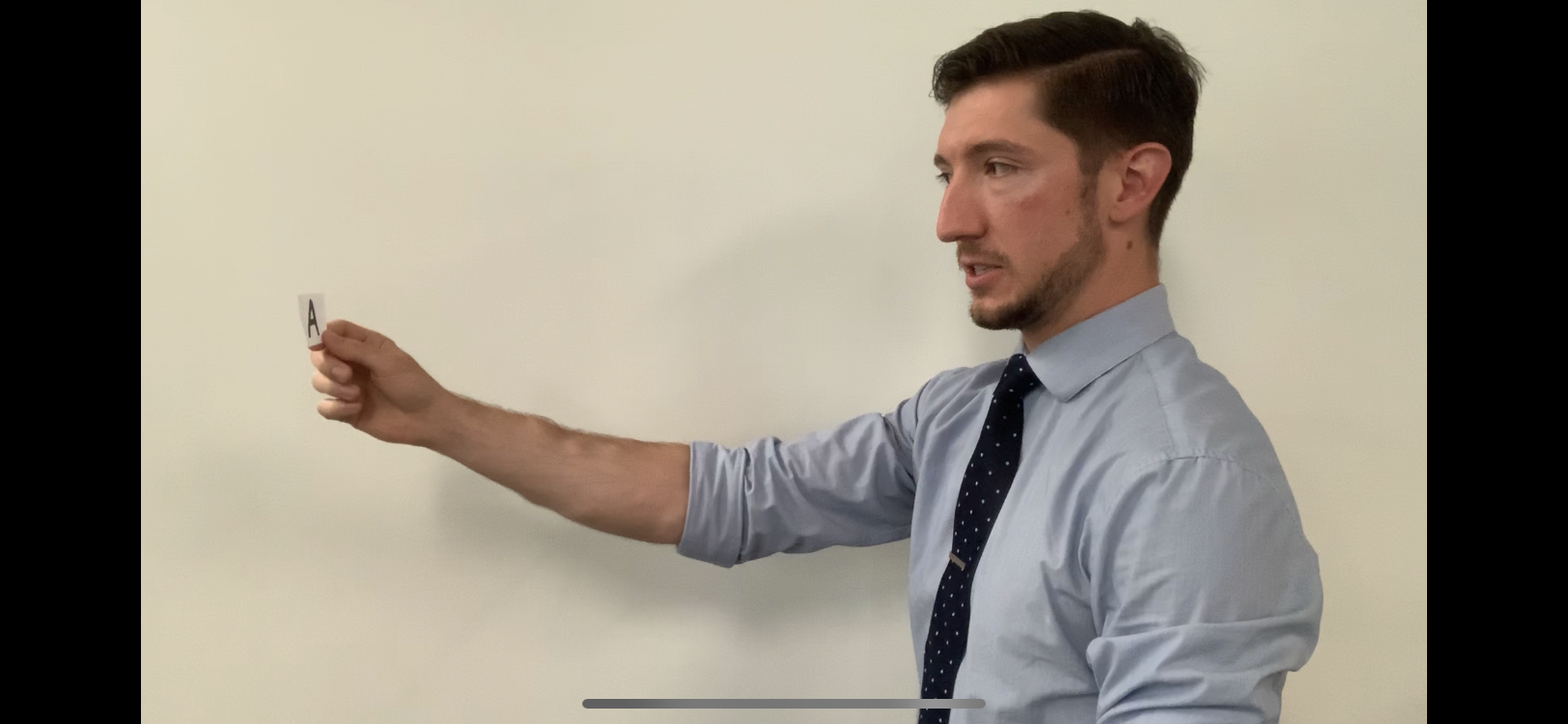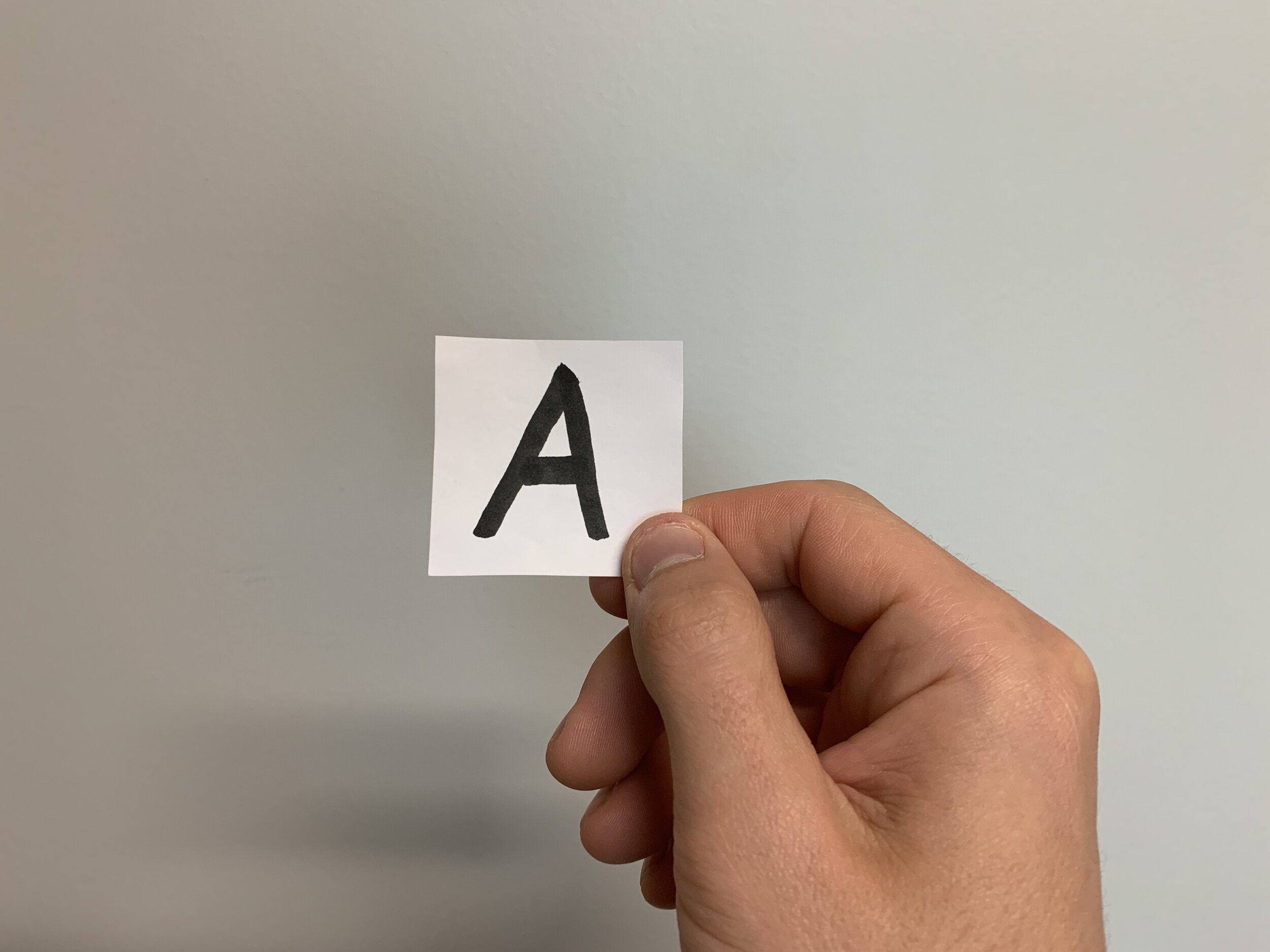Clear vision relies on seamless communication between the vestibular organ (in your inner ear) and your eyes. This allows your eyes to almost instantaneously adapt to changes to your head and body position. This is called your vestibulo-ocular reflex (VOR) and problems with this reflex are a common cause of dizziness and motion sickness. In short, your eyes are detecting head movement when there is none, which causes your eyes to try to refocus constantly, resulting in dizziness.
There are multiple tests a physical therapist can perform to assess the integrity of the VOR to see if it is a contributing factor to your dizziness. Try this test. Sit 18 inches away from the screen and focus your gaze on the letter.
Turn your head 45 degrees to one side, but keep your eyes focused on the letter. Then rotate your head 45 degrees to the other side, keeping your focus on the letter.
Begin to rotate faster and faster until you are turning your head at 2 rounds per second. That’s really fast! A normal response is that you can maintain focus on the letter at 2 rounds per second for 1 minute without dizziness. For sports participants you should be able to move at 3 rounds per second for 1 minute without dizziness.
If this movement causes you to become dizzy then your VOR might be a contributing factor to your dizziness.
Take a look at this post to see advice on how to rehabilitate your dizziness by training your VOR with exercises you can do at home.
Hold the card 18 inches in front of your face.
Focus on the letter as you turn your head side to side.



